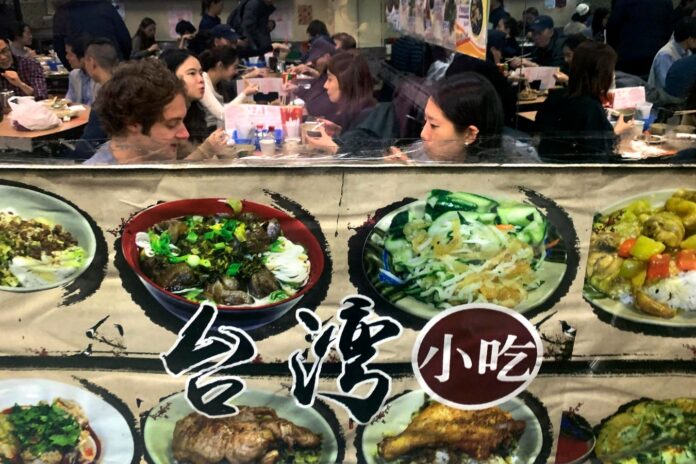Much of the mythology around the harm of monosodium glutamate, has been debunked—known as MSG, shows … [+]
“Growing up, I was told by an adult to ‘go back to China’ while walking the streets of Coney Island,” recalls Kat Lieu, a Seattle-based journalist, author, and founder of the Subtle Asian Baking community. “I saw myself as an American kid, but I was always viewed as an ‘other’ due to my cultural background.”
Lieu’s experience is all too common. “You have an America where Chinese food is seen as unhealthy or dirty or cheap, something like fast food, or worse,” she says. It’s a view that’s stuck around for decades, partly due to the stigma attached to monosodium glutamate.
The term “Chinese Restaurant Syndrome” (CRS), coined in the 1960s, bhelped fuel these misconceptions, impacting Asian-American communities by reinforcing harmful stereotypes and causing economic harm. Chinese and other Asian restaurants often faced declining business and were compelled to display “No MSG” signs to reassure customers, a practice that persists even today.
This past week, a group of chefs, food writers, and activists, supported by the ingredient company Ajinomoto, address the misconceptions surrounding MSG and the lasting impact of CRS. They’ve sent a public letter to the New England Journal of Medicine (NEJM), urging it to address its role in spreading this racially charged term and include it in their ongoing review of historical biases.
The coalition’s letter to NEJM is part of a broader effort to correct the record on MSG and tackle the enduring misconceptions that have affected Asian-American communities. Among the supporters is Ajinomoto, a leading producer of MSG in the U.S., which has backed educational campaigns aimed at dispelling myths about the ingredient.
However, the heart of the movement lies with the chefs, food writers, and activists who are dedicated to reshaping public perceptions. Their collective action emphasizes the real-world impact of these misconceptions on people and businesses, underscoring a push for education and dialogue rather than focusing on any one company.
The Origins of the MSG Stigma
The enduring stigma of “Chinese Restaurant Syndrome” has pressured many Chinese restaurants to put … [+]
Back in 1968, a letter published in NEJM by Dr. Robert Ho Man Kwok suggested a link between MSG and symptoms like headaches and nausea. The media quickly picked it up, and the term “Chinese Restaurant Syndrome” took off.
Jennifer L. LeMesurier’s research in Uptaking Race: Genre, MSG, and Chinese Dinner explores how media sensationalism played a role in amplifying these fears, turning what started as a lighthearted discussion among doctors into a harmful stereotype.
The repercussions of CRS have been both cultural and economic, impacting how Asian cuisine is perceived in the U.S. A 2020 study in Nature Human Behaviour examined consumer behavior towards Asian restaurants and found that misinformation and stigma—like those linked to terms such as CRS—contribute to the financial difficulties faced by these establishments.
Though this research primarily focused on the pandemic, it underscores a persistent bias that views Asian food as”unsafe” or “unhealthy.” This enduring stigma has pressured many Chinese restaurants to put up “No MSG” signs, reflecting an ongoing struggle against deeply embedded misconceptions.t bias against Asian cuisine. This data underscores the long-standing impact of such stigmatization on Asian-American businesses.
The Science of MSG: Debunking Myths
Contrary to popular belief, MSG is safe. The FDA and the World Health Organization both consider MSG to be safe when consumed as part of a normal diet. “MSG is one of the 20 essential amino acids, and our bodies contain about four pounds of glutamate,” says Tia Rains, Vice President of Science, Innovation & Corporate Affairs for Ajinomoto Health & Nutrition North America. “If people actually had an allergy to MSG, they wouldn’t live very long.”
MSG is often compared to salt—enhancing flavor and can even reduce sodium intake when used as a substitute. Yet, myths about its safety persist, stuck in the public mind due to outdated studies and cultural biases.
Cultural and Personal Impact on Communities
Much of the mythology around the monosodium glutamate’s harm has been debunked—MSG, shows up in many … [+]
For many Asian Americans, the stigma around MSG isn’t just about food—it’s about identity. “Chinese food is seen as unhealthy or dirty,” Lieu notes, pointing out how these stereotypes extend beyond cuisine and affect perceptions of Asian people as a whole.
Calvin Eng, chef/owner of the Cantonese-American restaurant Bonnie’s in Brooklyn, NY uses MSG in his dishes to boost umami. “It definitely brings out those umami characteristics you can’t necessarily achieve with just salt,” he says. But Eng also sees how Asian chefs often face pushback that their non-Asian counterparts don’t, revealing a broader issue of how their contributions are valued.
Advocacy Efforts and the Push for Change
The coalition’s letter to NEJM is part of a larger movement to correct the record on MSG and address the legacy of misinformation. Ajinomoto’s involvement is one aspect of this effort, but the focus is on collective action, not on promoting a single company. The coalition includes chefs, public health advocates, and other cultural leaders who all emphasize the need to shift public perception through education and dialogue.
Despite scientific consensus affirming MSG’s safety, misconceptions persist. Signs proclaiming “No MSG” continue to appear in restaurants, highlighting an enduring mistrust and a disconnect between evidence and public perception.
Building an Inclusive Food Narrative
Efforts by chefs, influencers, and advocacy groups are gradually reshaping how MSG and Asian cuisine are perceived. Through social media campaigns and educational initiatives, they aim to replace outdated myths with accurate, positive narratives.
Calvin Eng envisions a future where MSG is valued for its role in enhancing flavor, free from outdated stigma. “It’s about education and openness,” Eng says. “We need to shift the conversation to celebrate the quality and authenticity of the food, moving beyond old misconceptions.”
This movement is about more than just MSG. It’s about respect, cultural acceptance, and the right to enjoy food without the burden of bias.

